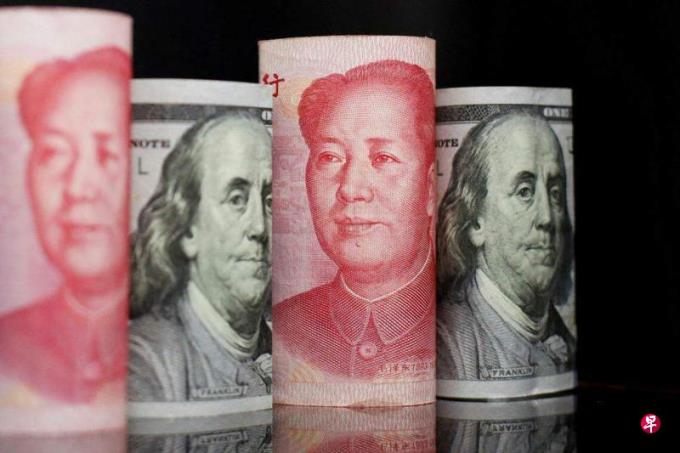
The awareness of both parties built by strategic dialogue 20 years ago has not adapted to the reality of the times.After the financial crisis in 2008, the United States increasingly believed that Sino -US economic and trade relations were not win -win but China. The cockpit stone of economic relations seemed to be a stumbling block; the identity of the responsible interests seemed to beThe greatest strategic opponent replaced.The stability of Sino -US relations has surpassed the stage of the intersection of interests, but to actively build a moment of strategic cognitive interchange points.
Recently, when Chinese leadership mentioned Sino -US relations, a keyword "strategic cognition" frequently appeared.On March 27, Chinese President Xi Jinping pointed out when meeting with representatives of the American business and strategic circles that it is necessary to "establish the correct strategic cognition" to "actively explore the correct way to get along with the correctness of the two countries."During April 2, Xi Jinping further emphasized during the Sino -US dollar telephone talks: "The problem of strategic cognition is always the first buttons that Sino -US relations must be deducted."As a scholar who has long studied China, the United States and Japan, and a scholar of Misperception, I have mentioned in the cognitive and misunderstanding of cognition and misunderstandings between China, the United States and Japan, mentionedAnd discussed the importance of strategic cognition, strategic cognition is the core knowledge foundation that affects the interaction of the relationship between great powers.If the strategic cognitive buckle of the first buttons is wrong, other buttons of various fields will appear in a full situation.
What is the strategic cognition?
The author believes that the strategic cognition of major powers, including Sino -US relations, is not only a dimension of mutual awareness between China and the United States, but includes the following three levels.The first is to observe and analyze the basic cognitive framework of international relations; the second is the awareness of the future trends and trends of the basic structure of international relations; third, the mutual awareness derived from the above two levels.
First of all, it is the basic cognitive framework of international relations. In other words, what kind of basic framework is to look at the issue of today's international relations.In recent years, Sino -US relations have continued to be tight. Coupled with the Russian and Ukraine War, the "geopolitical power competition" as the keywords of the cognitive framework, more and more appeared in the title of many national official words, think tanks, and media articles.
According to the logic of geopolitical science, big powers must expand through conquest space, otherwise their space will be crowded. Therefore, competition between China and the United States in the Asia -Pacific region will inevitably be zero -sum games.However, Hans Joachim Morgenthai, a master of international political science, has warned people as earlyPeople living in space are dynamic.After the Ukraine crisis, the United States further believed that China and Russia's close strategic relationships means that the United States and allies and China and Russia are starting a geopolitical competition in the heart of the world in the world.But the problem is that this classic geopolic logic, ignoring the relationship between great powers can adjust the mobility of people through other cooperation.
Second, the future trend cognition of the basic structure of international relations.Now almost all countries have acknowledged that we are undergoing historic changes in international relations, but there is no consensus in what direction the world will change.In the national security strategy released by the Biden government in 2022, it is believed that the post -Cold War era is completely over, and the world will enter the era of strategic competition in the great power.The author believes that the thinking of the big nation's center that defines the strategic competition of great powers as the trend of the basic structure of international relations is not in line with reality.The biggest change after the Cold War is not only the rise of China, but also the rise of the group of a large number of emerging countries, as well as the regional integration promoted by the strengthening of the horizontal connections of these countries.This trend will not stop due to the tension of the relationship between the great power.In the region, who would think of the Asianan composed of small and medium -sized countries not only established an economic community, but also played a central role in East Asian integration.Last year, Ya'an also held the first summit with the Gulf State.The majority of emerging countries are unwilling to see the competition between large powers to prevent them from modernization. This is why Yajia An specially issued a statement after the San Francisco Summit of the Sino -US San Francisco Summit last year.
Third, the core of the strategic cognition of China and the United States is whether it is the enemy or the problem of becoming a partner, which depends on the above two aspects.From the perspective of land politics as a cognitive framework, China and the United States will inevitably be the enemy; but if the world's interdependent framework is used, China and the United States must cooperate.If the basic pattern of international relations in the future is the competition of large powers and the hegemony of China and the United States, all countries will eventually choose to choose a border station; but if you think that the fundamental characteristics of the future international structure are the collective rise of emerging countries, and the awakening of international political awareness, even if China and the United States awaken, even if China and the United States are awakened, even if China and the United States are awakened, even if China and the United States are awakened.The hegemony cannot mobilize these countries to participate in the New Cold War.
Restart strategic dialogue to find strategic cognitive intersection
Strategic cognition is so important, how can we make it rational, pragmatic and constructive?The author believes that restarting strategic dialogue is an important way.
In 2005, then the US Executive Deputy Secretary of State Zell and China Vice Foreign Minister Dai Bingguo started the process of strategic dialogue between China and the United States. This also laid the mechanism of strategic and economic dialogue between China and the United States.Base.However, the awareness of the two sides built by the strategic dialogue 20 years ago has not adapted to the reality of the times.More than 20 years ago, China ’s strategic experts proposed the concept of peaceful rise to find the intersection of the interests of Sino -US relations. Sino -US economic and trade relations are the discourse systems such as the cockpit stones of the two countries, and it has emerged as the same.Responsible interests.After the financial crisis in 2008, the United States increasingly believed that Sino -US economic and trade relations were not a win -win situation but a win -win situation in China.Replaced.
The stability of Sino -US relations has surpassed the stage of the intersection of interests, but to actively build a moment of strategic cognitive intersection.The Chinese leadership clearly stated that the disease of Sino -US relations is very accurate and timely, so it is urgent to restart strategic dialogue.
The author is an associate professor in International Relations of Niigata University in Japan




